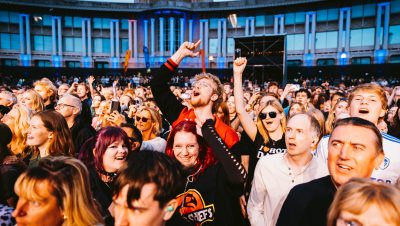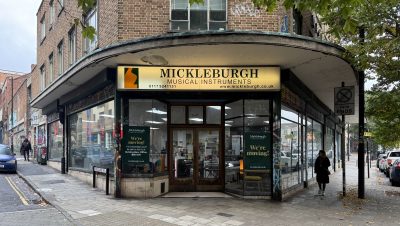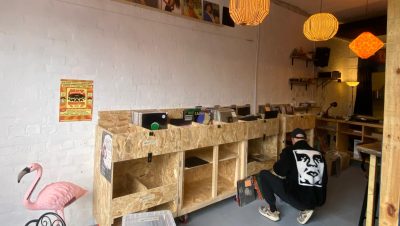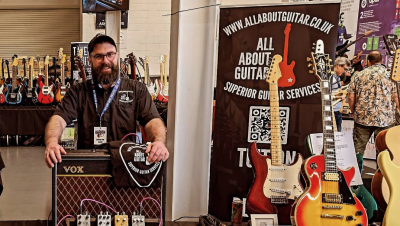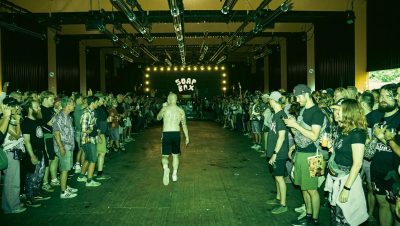Music / News
Beacon promises changes following issues raised by Disabled patrons
Bristol Beacon has agreed to review its processes with a view to improving disabled access provision following an email from concerned music fans.
The individuals, many of whom live with disabilities, requested a meeting with the venue following multiple communication issues and confusion about access to seating for those that need it.
In response the Beacon has said they will consider putting a dedicated contact for access requests in place at the box office, find ways to respond more effectively to seating requests at popular gigs and be “more cognisant” of energy limiting conditions.
is needed now More than ever
“It’s difficult and disappointing when things like this happen because we try incredibly hard,” said director of audiences Andy Boreham, who highlighted that since its refurbishment the Beacon has received gold charter status from access improvement charity Attitude is Everything (AIE), but that it “is not a static accreditation – we constantly have to demonstrate a commitment to improving.”
The Beacon refurbishment cost £130m, including over £84m of public money, and included renovations that made the historical building wheelchair friendly but reports say it is still not fully inclusive – photo: Ellie Pipe
The issues the group outlined included limited access to seating for those that require it; not enough space for wheelchair users, currently at two per cent of overall capacity; lacking understanding or accommodation of the needs of people with energy limiting and invisible conditions; no buffer for those that develop access needs at the last minute; and “shockingly poor” box office interactions.
Following three phone calls and an email, one Disabled individual was told a seat was not guaranteed and they should either request a refund or arrive when doors opened to see if one was available – an unviable option for people with conditions such as chronic fatigue syndrome, ME, long Covid, fibromyalgia and Crohn’s disease.
Others reported the energy required to ensure their needs were met and the stress of the process had resulted in their being unable to attend events they had tickets for.
Boreham said that during busy box office periods “access requests are getting tangled up in the on-sale process and potentially getting missed.
“We are not trying to make excuses, it’s our issue to sort. At this busy time of year with enquiries into the box office all the time – how can we ensure there’s dedicated access provision that’s always contactable and available?
“That’s definitely something we can look at – be that a dedicated phone line or email address. We’ve got people who are trained in running our Access Register and dealing with access enquiries, so how do we make sure those people are contactable at the point where people need them.”
The email stated that “older group members spoke of insufficient seating and consideration of their needs. Concerns were raised that the Beacon was not accounting for audience age range, and that many acts held appeal to older customers who struggled to stand for the duration of a concert….
“Research highlights that inadequate seating is a significant and common barrier that leads to social isolation for older people.”
Boreham explained the Beacon has more control to be responsive to the needs of ticket buyers when organising in-house events, but external promoters are only offered standing or seated choices for the gigs they put on at the venue.
“It’s something we are now taking to review,” he said. “If promoters want to run as a standing event to sell to the maximum capacity we insist there is an access viewing platform at the back of the room which can accommodate a number of patrons.
“Problems arise when demand for that access provision outstrips what is available. We often can’t make changes to the seating configuration until we have a conversation with the promoter.
“Clearly having such a binary option – a standing format with a viewing platform or a fully seated format at much lower capacity – is too restrictive.
“We need a few more options in between so we can confidently assess in the run up to the event, if we’re getting a lot of demand for access tickets we can say, we need to put more seats in. We need other formats we can introduce at the right point when we get lots of access requests. At the moment there is no wiggle room.”
Responding to criticisms of the venue’s Access Register – where customers can input details of their access needs to streamline the ticket buying process – Boreham said that while they are “really proud” of the self-built system, there are “clearly still some issues with it” and the venue is planning to form a consultation group to meet in the new year to address these issues.
The group identified their concerns as being common across music venues, and hopes the Beacon will be a supportive partner in making change to policies to render culture more widely accessible across the city.
“It’s unfortunate these things happen to highlight the issues but it’s not something we want to shy away from,” said Boreham. “I hope we can move forward and get it right more often than we get it wrong.”
While the group has not yet received an offer of a face to face meeting as requested, and some individuals are still waiting for a response to their own emails highlighting issues, a spokesperson said: “The beacon has acknowledged some of their shortcomings and are offering to work on improvements. That’s some success.”
Main image: Alec French Architects
Read next:
 Our newsletters emailed directly to you
Our newsletters emailed directly to you












